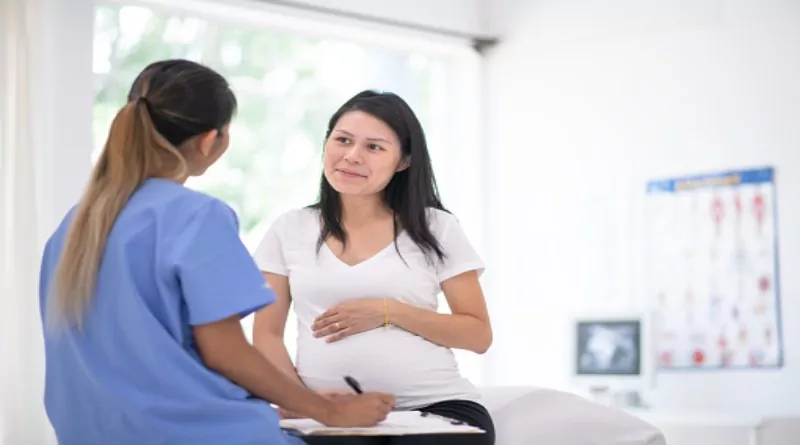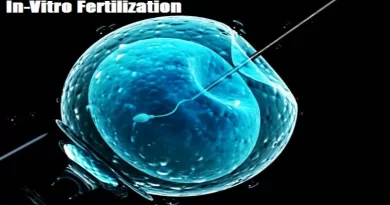Menopause or pregnancy: How to compare
Table of Contents
Overview
Menopause or pregnancy? The symptoms of menopause and pregnancy are quite similar. However, women who experience pregnancy in their 40s may be confused with the symptoms. Hence, this article will help you to understand the difference between menopause and pregnancy.
Menopause Or Pregnancy
There are some similar symptoms of menopause and pregnancy. Although, the symptoms of pregnancy differ from a previous pregnancy. Similarly, the symptoms of menopause also may differ from person to person. A list of common and unique symptoms of menopause and pregnancy will help you to understand the related difference.
Similar symptoms of menopause and pregnancy:-
- Missed period
- Bloating and cramps in abdomen or back
- Declination of libido
- Extreme tiredness
- Sleep problems
- Headaches
- Night sweats and hot flashes
- Mood swings
- Weight gain
Unique symptoms of pregnancy
- Nausea
- Constipation
- Food sensitivity
- Elevation in libido
- Swollen breasts
- Increased urination
Unique symptoms of menopause
- Fluctuations in cholesterol
- Gradual loss of fertility
- Bone mass reduction
- Vaginal dryness
Symptoms Similar To Pregnancy And Menopause
Fluctuations in the menstrual cycle
Pregnant women or are in the onset phase of menopause will experience certain fluctuations in their menstrual cycle because of hormonal changes. A complete missed period is an indication of pregnancy, while irregular shifts of periods can be an indication of perimenopause. Or either we can say as the onset of menopause.
The sudden shifts in the menstrual cycle lead to changes in the blood flow and shorter or longer periods. It is noticeable that irregular periods do not necessarily show the onset of menopause. Some other medical conditions might be associated with it. It will be good to consult your doctor.
Extreme tiredness and sleep problems
Extreme tiredness or fatigue in pregnancy happens due to the high levels of progesterone. It causes you to feel sleepy all day long. In menopause, you will feel sleeping issues, which eventually, cause you to feel tired.
Mood swings
Mood swings are so normal during the pregnancy period. Perimenopause or onset of menopause is also an unpleasant experience, undoubtedly. During pregnancy, women experience emotional and cry sometimes. While in menopause they feel irritability, moodiness and often deal with depression.
Headaches
Headaches are also on the top of symptoms. During pregnancy, high levels of hormones such as estrogen can be the reason for so. While in menopause, the depressed levels of estrogen can cause headaches.
Although, there may be other reasons like stress, insufficient sleep, not drinking enough water, etc.
Weight gain
Weight gain is common during pregnancy. As the baby grows, the belly shows bloating. Well, the overweight or more than recommended weight is not good for the mother’s health.
On the other hand, weight gain in the initiation of menopause is the consequence of the reduction in the metabolic rate. When the food doesn’t metabolize properly, it leads to uncontrollable weight gain.
Problems in urination
Pregnant females often feel peeing, because of the increased level of fluids due to an increase in the blood level. While during menopause, the loss of tissue strength may weaken the bladder’s function. Though, it may happen during pregnancy too.
Changes in libido
During pregnancy, women feel more sexually stimulated sometimes and low at other times. While, in menopause, women feel low libido as compared to previous experiences. It happens because of the changes in hormones, which is the actual reason for causing pregnancy and menopause.
Bloating and aches
Cramps and aches may start in the early phase of pregnancy. The changes in hormones cause the bloating. In the case of perimenopause, it may be a sign of the onset of menstruation.
Hot flashes and night sweats
However, these are the signs of menopause. But can be observed in the initial phase of pregnancy. You will feel a quick flow of heat, that will make you sweat and may rush your face to read. Also, it may happen during sleep, which might interfere with your sleep and make you feel tired. arab casino
Unique symptoms of pregnancy
Constipation
During the pregnancy phase, a lot of changes may interfere with the digestion process. Consequently, constipation happens more often during pregnancy.
Constipation is a common gastrointestinal issue, that can affect anyone.
Nausea
Nausea with a feeling of vomiting happens during the initial phase of pregnancy. Often called morning sickness. In which women feel a constant feeling of vomiting all day, while some don’t feel throughout pregnancy.
Food sensitivity
Changing taste buds is associated with one of the unique symptoms of pregnancy. Women feel to eat something, which they haven’t had for a long time. Also, they may fall sick after eating or smelling certain foods.
Swollen breasts
Your breasts might feel a bit sore and swollen, due to the fluctuations in hormones. Our body adjusts the organs according to hormonal changes.
Unique symptoms of menopause
Infertility
Menstruation becomes irregular and at the proper phase of menopause, ovules no more rupture. It indicates infertility, hence, the female can’t become pregnant. But, if you still having your periods, the chances are there for you to become pregnant.
Fluctuation in cholesterol level
The increased level of estrogen can cause elevating your LDL(low-density lipoprotein) which is “bad cholesterol”. Thus, decreasing the level of “good cholesterol” which is the HDL(high-density lipoprotein). Consequently, it makes you more vulnerable to heart diseases.
Also read| Foods to lower cholesterol
Vaginal dryness
Your vagina loses elasticity and lubrication, due to the constant decrease of estrogen levels. After attaining menopause, these hormonal levels can’t become optimal again. The dryness may make sex painful and can cause bleeding during intercourse. العاب الربح
Bone mass reduction
The lower hormonal state may interfere with your bone density levels. After a particular age, women experience low bone density. So, it does to you in menopause. Additionally, the chances of attaining osteoporosis become high.
Nonetheless, the birth rate for women ages 45 has increased to 5%. Women experience menopause at age above 45. If you are experiencing early symptoms of menopause, you should talk to your doctor about that. Premature menopause may be interlinked to any other underlying medical condition.
Conclusion
Menopause or pregnancy is, however, can be understood by the common and unique symptoms linked to both. There are some common symptoms of menopause and pregnancy like missed periods, mood swings, hormonal changes, weight gain, bloating and aches, etc. pregnancy has some unique symptoms like morning sickness, food sensitivity, hot flashes, and heavy sweating. Likely, perimenopause or onset of menopause also has some unique ones such as infertility, bone mass reduction, changes in cholesterol levels, vaginal dryness. If you feel signs of menopause, do a pregnancy test and confirms with your doctor. Premature menopause is also a condition, that can be treatable by some hormonal therapies and lifestyle changes.
Frequently Asked Questions
Can menopause be mistaken for pregnancy?
Well, menopause and pregnancy have some similar outcomes on a woman’s health and the onset of menopause often come up with a doubt of being pregnant. But at a certain age, fertility declines gradually reducing the chances of pregnancy in the late 40s or in mid. Before complete menopause women experience a transition phase called perimenopause which comes along with some common symptoms of pregnancy such as irregular periods, vaginal dryness, excessive mood shifts, difficulty in sleeping, lack of sex drive, and hot flashes with sweating.
How do I know if it’s menopause or pregnancy?
Although, the onset of menopause may be confused with pregnancy. The symptoms include no longer or short periods. And some more signs that could be similar to pregnancy. First of all, you need to know that menopause is not an early process, it takes 2-8 years to come until you won’t reach a certain age between 45-51 and may go up to 56. Thus, if you are in that age group it can be the onset of menopause if the periods won’t come for one year straight. But in case you have lost periods and you are in your mid-30s it can be pregnancy.
Well, if you doubt two there is nothing wrong with getting a pregnancy check. It should also be noted that irregular periods can be an indication of other medical conditions.
Can menopause cause a positive pregnancy test?
Yes, it happens, sometimes when a woman goes through menopause or in a post-menopausal phase. كازينو في السعودية Due to the high levels of HCG hormones, pregnancy tests may be positive even if you aren’t pregnant.
Do you still ovulate during perimenopause?
Yes, you may ovulate during perimenopause as your hormones fluctuate a lot during that time. You may have a lengthened or shorter menstrual cycle. You also can have bleeding while your ovaries don’t release eggs. Perimenopause is the transition phase where your periods are irregular and other symptoms of pregnancy might co-occur.
What is your period like right before menopause?
During the onset of menopause, you feel an irregular pattern of bleeding which was once regular. Before the perimenopause phase, your hormonal levels stay normal and consistent which contributes to ovulation. With time and change, they also start to fluctuate desperately causing you irregular periods with an unpleasant experience like mood shifts and abdominal cramps, nausea, and headache might also be felt.
How many years do you have your period before menopause?
You will experience perimenopause for 2-8 years before achieving menopause. You haven’t reached menopause until you don’t observe a complete loss of periods for 12 months consecutively. So, if you are in your late 30s or about to cross 40 you may experience irregular periods for a few years.
Is your last period before menopause heavy?
Generally, it takes 4-6 years to reach menopause and before this stage, periods become less regular. While in some it brings heavy bleeding and in some low as usual and finish early. There is no exact scenario of periods being heavy, but yes some hormonal changes affect everybody differently.
What are the worst menopause symptoms?
Menopause is however normal to occur after a particular age, still can be very unpleasant and uncomfortable. Even the onset of menopause is quite difficult to handle as it brings enormous mood shifts due to excessive hormonal changes.
Here are the worst menopause symptoms:-
- Difficulty in sleeping
- Hot flashes with night sweats
- irritability
However, the other symptoms like mood shifts, vaginal dryness, and irregular periods aren’t that severe as described above revealed by the respondents in a study.
Does period days reduce with age?
On average periods stay up to 2-7 days and occur every 21-35 days. The first few years have a longer menstrual cycle and are common. With age, they tend to shorten up to fewer days than they once were. And after the onset of menopause, it also starts to become irregular. Sometimes having no periods or having prolonged heavy periods that go up to more than usual days can be another medical condition.
Why do I smell so bad on my period?
The smell usually occurs due to the bacteria and blood while menstruating. Our vagina has some amount of bacteria that is responsible for a fish or rotten smell out there. However, the smell is excited by blood and tissues in periods. Well, it is not strong enough to be detected by someone. Thus, routinely cleaning is important to prevent infections and bad odors in those days.
What does drinking a lot of water do for your period?
Hydration works in everything including periods. You should drink enough water to boost your periods. Drinking plenty of water during periods will prevent you from cramps and back pain and also prevents your blood from thickening. When your blood flow is firm, you get fewer cramps and pain.



